Building a Better Metaverse with Gather
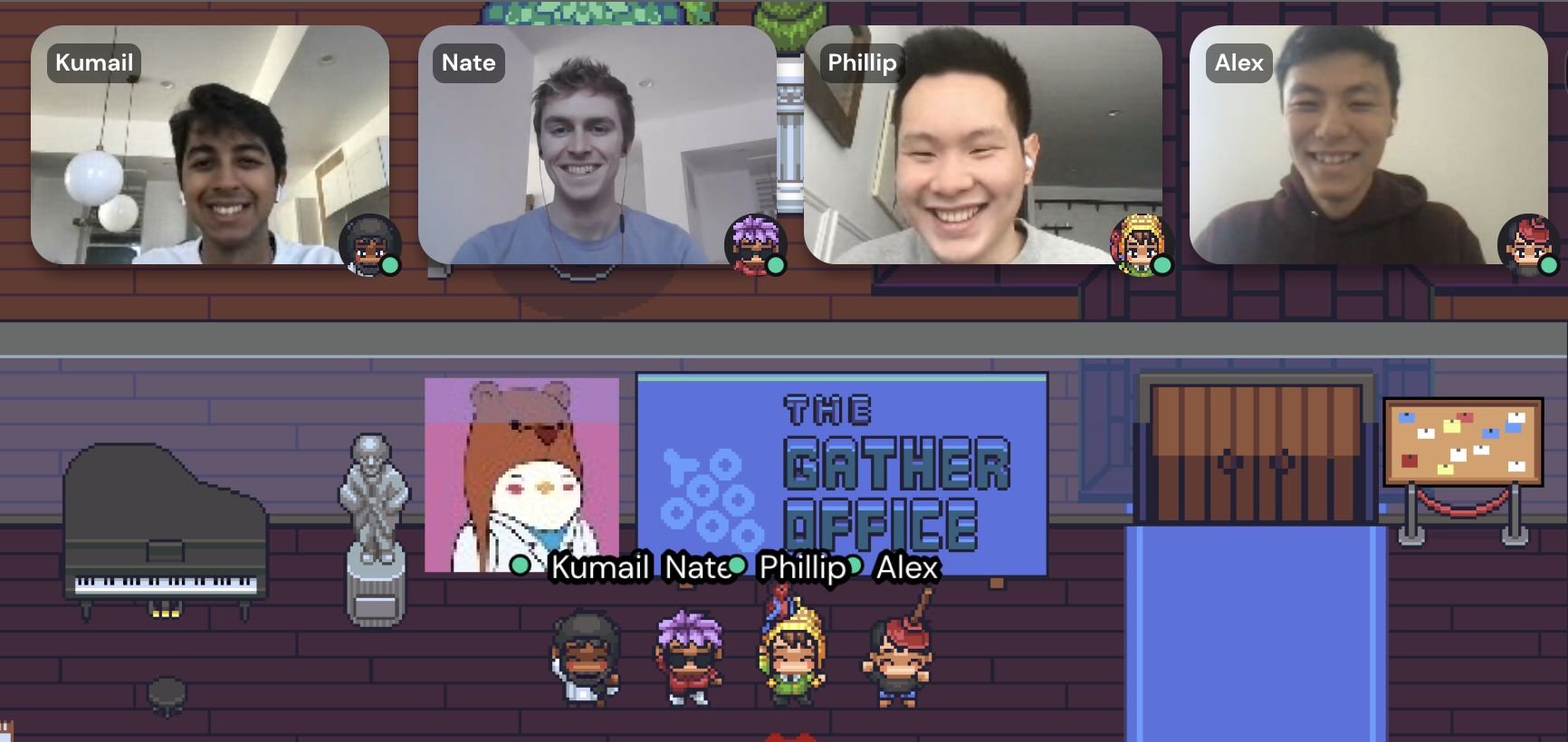
We're becoming a digital species. Perhaps we've already become a digital species. We live online, we work online, we play online. The internet is our place for cultivating community, our place for unleashing creative expression.
This is a unique moment in time: technology breakthroughs are colliding with massive cultural shifts. Over the next decade, much of our analog world will be replicated in digital realms: land and buildings, clothing and furniture, jobs and economies. This migration is already underway.
For many young people, a digital-first world is the only reality they've ever known. They are hackers who learned to code in Minecraft. They are Lord of the Rings fanatics who immersed themselves in LOTR subreddits. They spent more time in pizza parlors in Roblox than in their own school cafeterias. They are the digital natives.
When we first met Phillip, Alex, Nate, and Kumail—Gather's four co-founders—it was clear they were a new kind of entrepreneur: visionary, brilliant, but also born from the internet. True digital natives. They grew up online, and they had a vision for more serendipitous, rich, and meaningful online connection. Gather is the manifestation of that vision.
At Index, we're thrilled to be co-leading Gather's $50 million Series B with Sequoia.

Gather is a place to live and work and play online—a place to cultivate vibrant community and a place to unleash creative expression. At its core, Gather is about restoring humanity to virtual interaction. And as our social graphs become untethered from our offline lives—as we meet new people online, unconstrained by geography—Gather is a place to interact with friends from the analog world and from the digital world.
We first met Phillip a year ago, when we visited Gather's virtual office. We were struck by the sheer delight of the product. We customized our avatars and Phillip led us through Gather's hallways to a private room. Unlike Zoom, Gather's spatial audio and video lent a real sense of presence. Sarah was to Phillip's left. Rex was to Phillip's right. We felt connected.
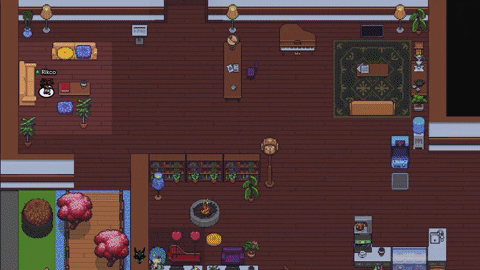
Exploring an office built in Gather (Source)
We were also struck by Phillip himself. He is the rare entrepreneur who has been inventing his entire life, tinkering with everything from dating apps to Lidar-enabled walking sticks for the blind (yes, really). From the moment we met Phillip, it was clear that he is a first-principles thinker with a commitment to building a better future.
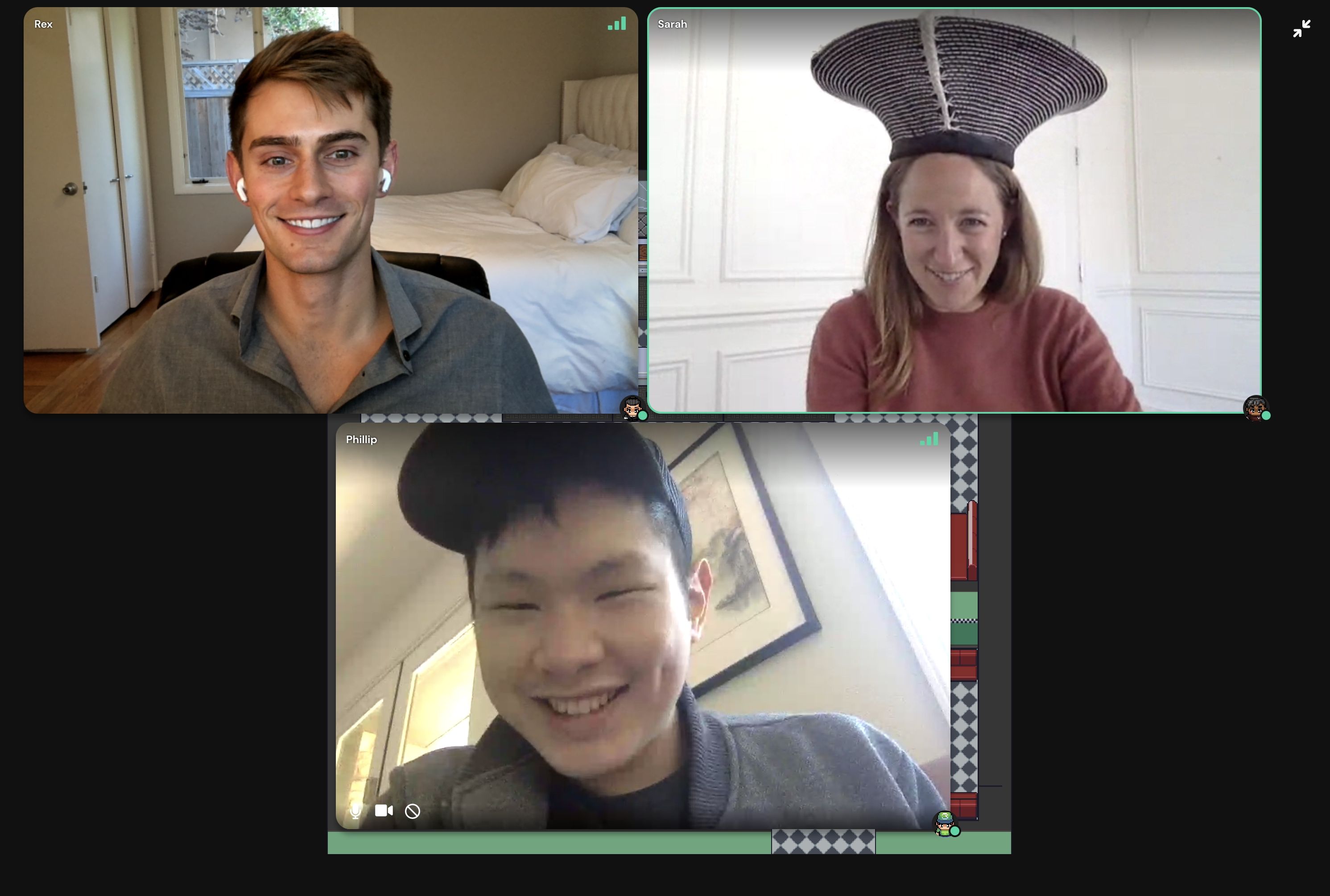
Rex and Phillip, Gather's co-founder and CEO, admire Sarah's Zulu hat while meeting in Gather's virtual office
As we began to learn more about Gather's product, we spoke to dozens of early users around the world. We were stunned by how people had begun to embrace Gather. Many turned to Gather for remote work. One CEO in Korea called Gather his "digital WeWork"—the virtual real estate underpinning his company. A team in Brooklyn decorates their Gather office with balloons and streamers each time a colleague has a birthday. And a woman living in London was able to move home to Sweden to be with her aging parents. In Gather, she still works beside her closest colleague every day.
It's not only work, but also life being lived in Gather. We talked to people hosting events in Gather with thousands of attendees. Students from around the world were able to attend the University of Washington's admit weekend, without being burdened by airfare and hotel costs. Thousands of people congregated in a days-long neuroscience convention held in Gather. And one young woman in a developing country told us Gather was the only way she'd been able to participate in a job fair because she hadn't been able to secure a visa.
Gather's co-founders built Gather with near-limitless customization. From the beginning, they wanted people to be able to create anything and everything—including (or especially) the things they themselves couldn't dream up. Within Gather, millions of people have gotten together for a family dinner, joined a study session, or even been married (!).
As we spoke to Gather's users, we began to pick up on something exceptionally rare in a product. We heard stories of people joining a birthday party in Gather, only to then be inspired to build their company's office in Gather. This reminded us of flywheels we've seen in the past: Roblox players becoming developers; Deliveroo customers becoming couriers; Etsy buyers becoming sellers. We'd caught an early glimpse of Gather's powerful viral growth loop.
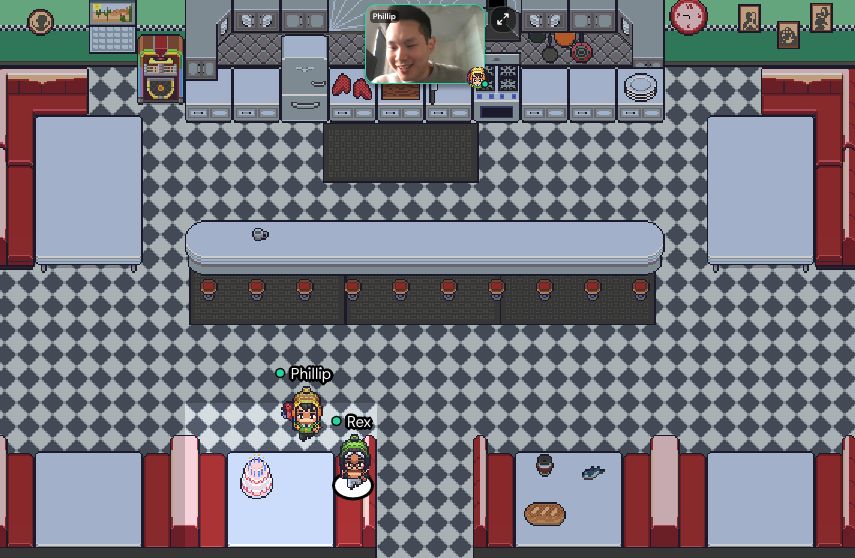
Rex and Phillip meet in a booth in Gather's cafe
Phillip, Alex, Nate, and Kumail share an ambitious vision: to build the metaverse, a fundamental reimagining of how we interact with each other and of the spaces in which we gather.
In 1964, the philosopher Marshall McLuhan famously proclaimed, "The medium is the message." What McLuhan meant is that the technologies through which we communicate are even more formative than the content of our communications. He wrote, "We shape our tools and thereafter our tools shape us.” We've been struck by how the Gather team lives by this credo. Above all, they want to build the metaverse with a clear set of values: open, collaborative, and built for users.
This moment brings a sense of urgency: the metaverse is fast-approaching, and decisions we make today will shape how it's crafted. But this is also a moment of opportunity. If you're energized by what Gather is building, they are hiring across nearly every function.
We're thrilled to be partnering with Gather on this journey. They've shown us that the metaverse isn't a far-off vision, but a transition that's already in motion. They are building the metaverse, brick by brick. And they're building it the right way.
Published — Nov. 3, 2021
-
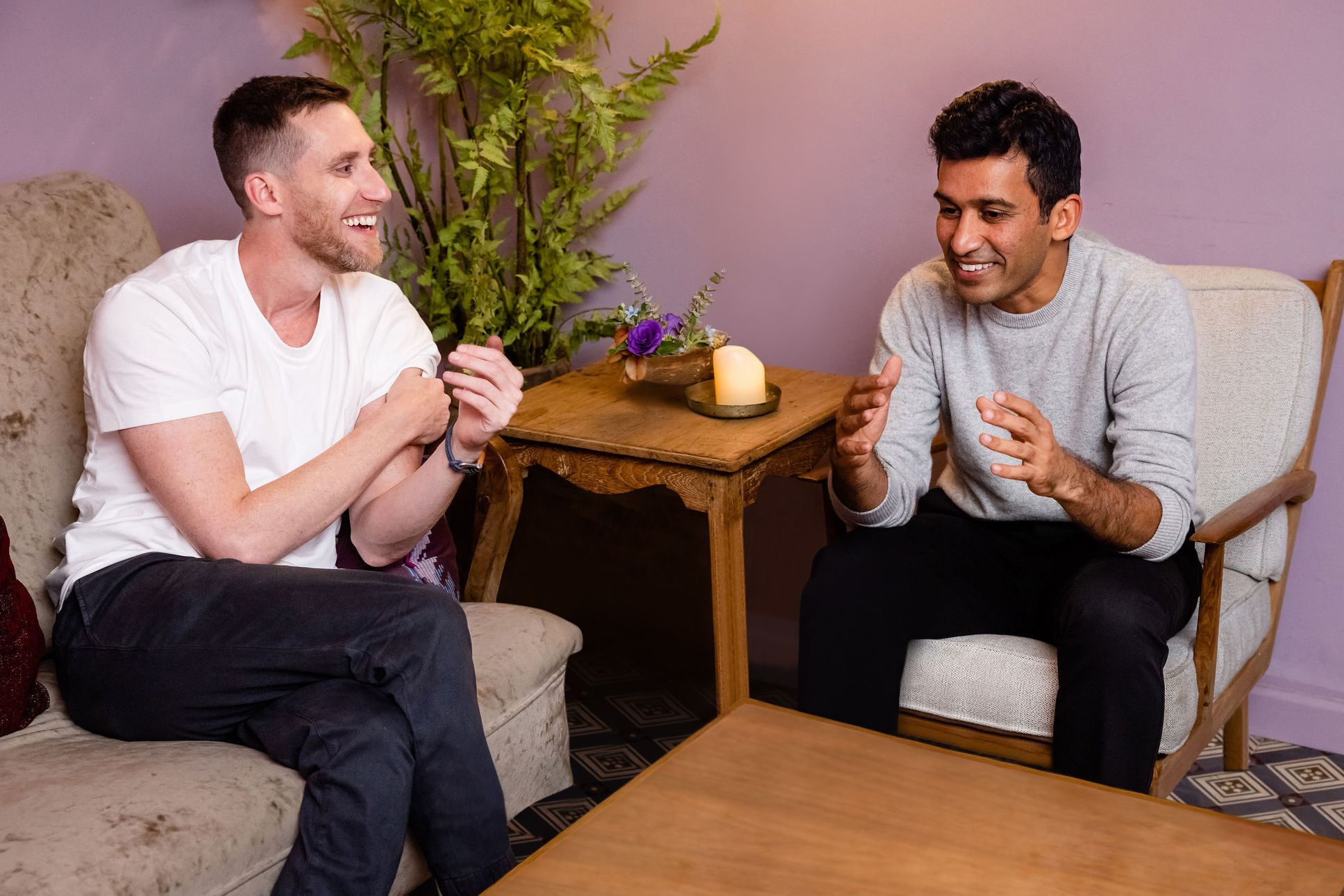
-
